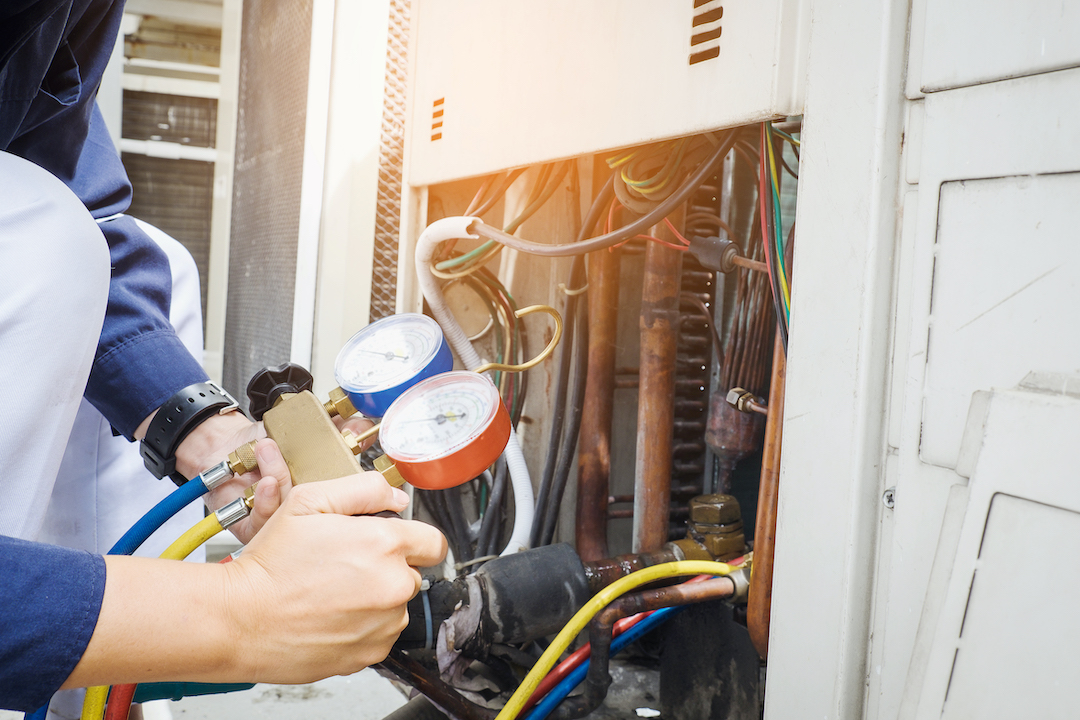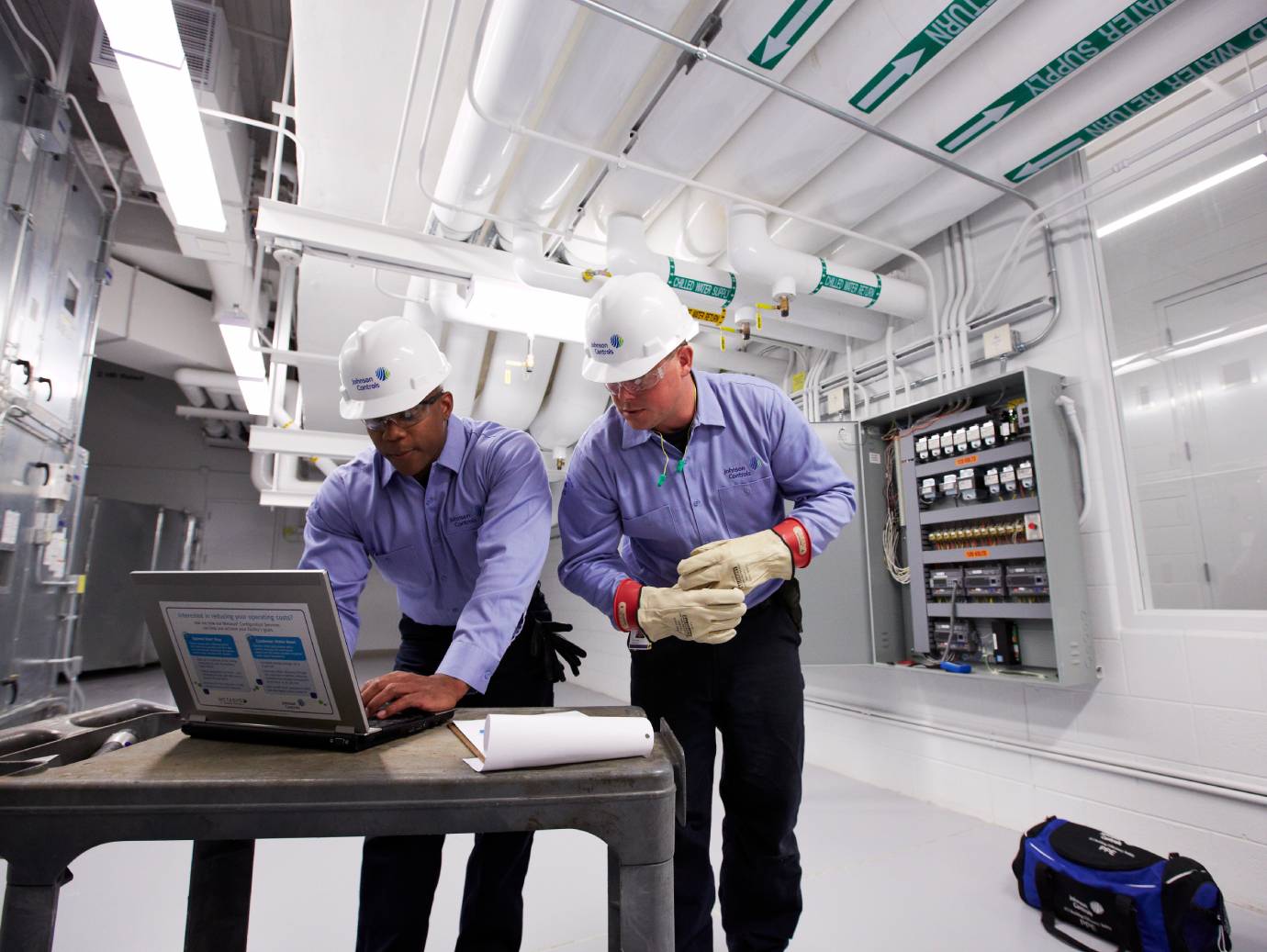Picking In Between a Heat Pump and Heater: Secret Considerations for Your A/c Requirements
When reviewing heating options for cooling and heating requires, the decision in between a warm pump and a heating system can be complex. Each system supplies distinct advantages customized to certain climates and energy effectiveness objectives. Comprehending these distinctions is essential for making an educated choice. Secret aspects such as installment expenses and environmental influence additionally complicate the choice procedure. Which option genuinely aligns with one's convenience and sustainability choices? The following sections will discover these considerations carefully.
Recognizing Heat Pumps: Just How They Work and Their Advantages
While many home owners think about numerous home heating choices, recognizing exactly how heatpump function and their advantages can greatly influence their choice. Heatpump run by moving warm instead than generating it. In the wintertime, they extract warm from the outdoors air or ground and move it indoors, while in the summertime, they reverse this procedure, cooling the home by getting rid of heat outside. This double capability makes them flexible for year-round environment control.One of the primary benefits of warm pumps is their power effectiveness. They utilize significantly less electrical power contrasted to conventional furnace, potentially leading to reduced energy costs (furnace replacement). In addition, heatpump have a smaller carbon footprint, making them an ecologically pleasant selection. They additionally call for much less upkeep than traditional systems, contributing to long-term cost savings. Overall, understanding the auto mechanics and advantages of heatpump can assist home owners make educated choices concerning their home heating and cooling requirements
Exploring Furnaces: Kinds, Procedure, and Benefits
Heating systems are available in different types, including gas, electrical, and oil versions, each with unique operational mechanisms. Understanding these distinctions is vital, as they affect performance and heating performance. Furthermore, furnaces supply numerous advantages, such as consistent warmth output and reliability in cooler climates.
Kinds of Heaters
Heating systems can vary substantially in style and operation, with heaters being a prominent option amongst house owners. There are several kinds of heating systems, each utilizing various fuel resources and innovations. Gas furnaces are usual, leveraging natural gas to generate warm efficiently. Electric heating systems, on the other hand, make use of electric resistance to create warmth, often preferred for their straightforward setup. Oil furnaces, while less usual, work in locations with restricted gas accessibility (ductless mini splits). Furthermore, condensing furnaces take full advantage of energy effectiveness by recycling and recording exhaust gases. Each kind operates with a system of heat exchangers and ductwork to distribute cozy air throughout a home. Recognizing the distinctions in between these heating system kinds is necessary for informed heating and cooling choices
Advantages of Heating systems
For home owners seeking reputable heat during cool months, the benefits of furnaces are considerable. Heaters provide consistent heating, making certain even temperatures throughout the home. They are particularly effective in extreme chilly, usually exceeding warmth pumps in frigid conditions. Different types, including gas, electric, and oil heating systems, use adaptability to fulfill varied demands and preferences.Furnaces also tend to have lower initial setup costs contrasted to warm pumps, making them a much more accessible alternative for several. Their robust layout adds to a much longer life expectancy, with numerous systems lasting over 15 years with appropriate maintenance. Additionally, contemporary heating systems are commonly furnished with sophisticated innovation for improved efficiency, which can cause reduced energy costs. On the whole, heaters continue to be a reputable option for efficient home heating.

Energy Performance: Comparing Warmth Pumps and Furnaces
When contrasting power performance between warm pumps and heaters, the Seasonal Energy Efficiency Proportion (SEER) plays an essential function in establishing performance. Additionally, an operational expense evaluation discloses the long-lasting monetary implications of each system. Recognizing these factors can guide homeowners in making informed choices concerning their heating services.
Seasonal Energy Effectiveness Ratio
Power performance plays an essential role in the decision-making process between warmth pumps and heaters, especially when thinking about the Seasonal Power Effectiveness Proportion (SEER) This metric procedures the cooling performance of warmth pumps over a whole air conditioning period, supplying a standard method to examine performance. Higher SEER ratings indicate better power effectiveness, converting to reduced energy consumption and decreased utility costs. In comparison, heaters are generally assessed using the Annual Gas Use Effectiveness (AFUE) score, which reflects home heating efficiency. When comparing these two systems, home owners ought to focus on SEER ratings for warm pumps, as they directly effect total power financial savings and environmental sustainability. A detailed understanding of SEER can significantly influence the lasting fulfillment and cost-effectiveness of the selected HVAC remedy.
Operational Price Analysis
Understanding the functional costs connected with warmth pumps and heating systems is important for homeowners assessing their options. Warmth pumps generally use greater power performance, converting electrical power right into warmth with very little waste. This results in lower monthly utility bills, particularly in moderate climates. Alternatively, conventional furnaces, especially gas versions, may have reduced in advance costs but can incur higher operational expenses in time because of fuel rates and effectiveness ratings.Moreover, warmth pumps can function as both home heating and cooling systems, potentially lowering the need for different heating and cooling units. While preliminary financial investments for heatpump may be higher, their long-lasting cost savings in power effectiveness can make them a much more cost-efficient choice for numerous houses. Mindful analysis of regional energy prices is important to figure out the most effective option.
Setup Expenses: What to Anticipate for Each Furnace
Installment prices for furnace can differ significantly in between heatpump and furnaces, influencing property owners' decisions. Heatpump normally have greater upfront installation costs, usually varying from $3,500 to $8,000, depending on the system dimension and complexity of installment. This includes the exterior unit, interior handling system, and necessary ductwork adjustments. On the other hand, heating systems have a tendency to have lower initial costs, averaging between $2,500 and $6,000, which can be appealing for budget-conscious property owners. Setup costs can increase if extensive ductwork is required.Moreover, the selection of gas type for heaters-- natural gas, propane, or electrical-- can also influence setup costs. While warmth pumps use energy effectiveness, their initial financial investment may deter some customers. Inevitably, assessing setup prices alongside long-term savings and effectiveness will help home owners in making educated choices regarding their furnace.
Environment Considerations: Which System Performs Better in Your Location
Exactly how do environment conditions affect the efficiency of heater? The efficiency of heat pumps and heating systems can vary substantially relying on the local environment. In moderate environments, heatpump succeed by efficiently moving warmth from the outdoors air, making them an energy-saving alternative. Nonetheless, their efficiency diminishes in exceptionally cold temperatures, where they might struggle to draw out sufficient warm. Alternatively, furnaces, especially gas models, offer trustworthy and regular heat no matter outdoor problems, making them more suitable in colder regions.In locations that experience milder winters months, warmth pumps can operate efficiently year-round, providing both heating & cooling. On the other hand, areas with rough winters months commonly benefit from the toughness of heaters. Inevitably, recognizing the neighborhood environment is important when deciding in between a heatpump and my review here a heating system, as it straight influences their functional performance and general efficiency.
Upkeep Demands: Long-Term Care for Warmth Pumps vs. Furnaces
While both heatpump and heating systems require normal maintenance to assure peak efficiency, their specific needs and treatment routines vary substantially. Heaters generally need much less regular interest, with yearly examinations sufficing to examine for gas leakages, tidy filters, and analyze overall capability. Their simpler design often enables straightforward repairs.In contrast, heatpump necessitate semiannual upkeep as a result of their dual duty in cooling and heating. This includes cleansing coils, inspecting refrigerant levels, and guaranteeing that both the interior and outdoor devices operate at their ideal. Additionally, heatpump upkeep commonly includes more intricate components, making professional servicing essential.Neglecting upkeep can bring about decreased performance and enhanced power costs for both systems. Inevitably, home owners must take into consideration these long-lasting care needs when choosing between a heatpump and a heater, as proactive maintenance can prolong the life expectancy and efficiency of either system substantially.
Ecological Impact: Selecting a Sustainable Heating Choice
The ecological influence of heating unit is a critical assessment for property owners seeking lasting alternatives. Heatpump are typically a lot more energy-efficient than standard heaters, as they move warm instead than produce it, substantially reducing carbon emissions. By utilizing renewable resource sources, such as geothermal or air-source heatpump, home owners can further lessen their ecological footprint.On the various other hand, all-natural gas furnaces release greenhouse gases and add to air pollution, though they typically offer higher warmth result. Developments in technology have actually led to the advancement of high-efficiency heaters that decrease emissions.Ultimately, choosing a home heating system includes weighing performance against ecological effect. Property owners are urged to review local power resources and incentives for eco-friendly systems, making sure a choice that lines up with both personal comfort and ecological obligation. The choice impacts not just instant comfort but also long-term sustainability and environmental wellness.
Regularly Asked Inquiries
Just How Lengthy Do Warm Pumps and Furnaces Typically Last?
The life expectancy of heatpump commonly ranges from 15 to twenty years, while heaters can last between 15 to three decades. Regular maintenance significantly affects their durability and performance in providing heating remedies.
Can I Use a Heatpump in Very Cold Climates?
Heatpump can run in very cold climates, however their effectiveness reduces as temperature levels decrease. In such problems, supplemental heating sources might be required to keep comfy interior temperatures and ensure peak performance.

What Is the Noise Degree of Heat Pumps Versus Furnaces?
The sound levels of heatpump and heaters differ considerably. Usually, heatpump run more silently than standard heating systems, making them more effective for those sensitive to sound, while heaters might create louder operational noises throughout heating cycles.
Are Heat Pumps Suitable for Both Home Heating and Air conditioning?
Heatpump are indeed ideal for both heating & cooling (heat pump installation ooltewah have a peek at this site tn). They function by transferring warmth, providing reliable temperature level control year-round, making them a functional choice for homeowners looking for an all-in-one heating and cooling option
What Size Heater Do I Required for My Home?
Figuring out the suitable size heater for a home needs assessing elements such as square video footage, insulation top quality, local climate, and the home's format. Consulting an expert can assure an exact assessment and ideal comfort. Heat pumps normally use higher energy effectiveness, transforming electric power right into warm with very little waste. In modest climates, warm pumps stand out by efficiently moving heat from the outside air, making them an energy-saving alternative. Alternatively, furnaces, especially gas models, offer trustworthy and consistent warmth regardless of outside problems, making them more suitable in cooler regions.In locations that experience milder winters, warm pumps can operate effectively year-round, supplying both home heating and cooling. Warmth pumps are generally a lot more energy-efficient than typical heaters, as they move warmth rather than produce it, considerably lowering carbon exhausts. By making use of eco-friendly power i thought about this resources, such as air-source or geothermal warm pumps, house owners can additionally reduce their ecological footprint.On the various other hand, all-natural gas heating systems discharge greenhouse gases and add to air pollution, though they usually give greater warm output.
Comments on “Cost Planning for Your Upcoming heat pump replacement ooltewah tn”